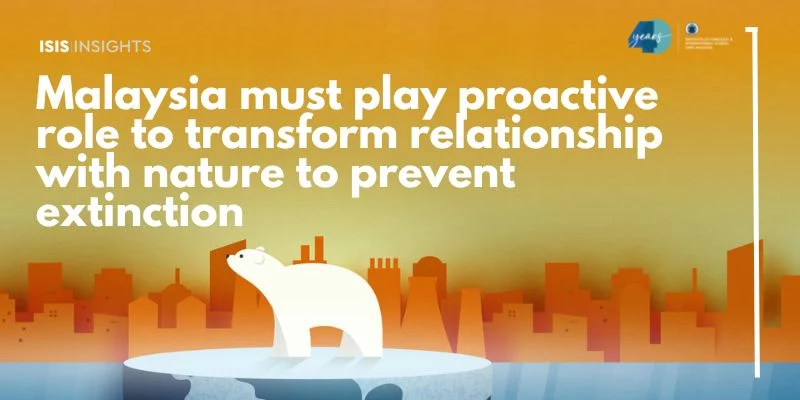As one of 17 mega-diverse nations, we can do much more to prevent extinction
SELDOM are the results of a United Nations mega-meeting hailed in world news headlines as “historic”, “landmark”, “breakthrough” and “crucial”.
But such have been the acclamations since nations adopted the Kunming-Montreal Global Biodiversity Framework (GBF) in the wee hours of 19 December 2022.
After more than two years of Covid-related delay and two intense final weeks of negotiations in Canada chaired by China, the 196 parties to the UN Convention of Biological Diversity (CBD.int) embraced the GBF’s four ambitious goals and 23 targets to arrest the loss of biodiversity by 2030.
A marquee outcome: to protect and restore 30% of the world’s lands, oceans, coastal areas and inland waters by 2030, while also acknowledging the rights of indigenous people and local communities who depend on and manage much of Earth’s remaining biodiversity.
Even the United States, one of only two non-parties to the CBD (the Vatican City being the other), has independently adopted the 30X30 target. The target is not legally binding, but countries will have to demonstrate progress through regular national and global reviews.
And the world is now watching closely.
Among the framework’s many other objectives:
- A US$500 billion (RM2.2 trillion) reduction in annual subsidies to fossil fuel and other industries that devastate nature while scaling up positive incentives for biodiversity’s conservation and sustainable use;
- A 50% reduction of both excess nutrients and the overall risk posed by pesticides and highly hazardous chemicals;
- A 50% reduction in food waste; and,
- A halt to the spread of priority invasive species.
Achieving these targets will challenge every nation. But the need to transform our relationship with nature was underlined in a 2019 assessment by the Intergovernmental Platform on Biodiversity and Ecosystem Services (IPBES).
It warned that biodiversity loss was occurring at an unprecedented rate in human history and accelerating, and that up to one million of Earth’s eight million species of plants and animals are under threat of extinction.
The great irony is that our own survival depends on biodiversity and the web of life for healthy ecosystems that sustain our existence with food, water and clean air.
UN Secretary-General Antonio Guterres hailed the GBF, saying that: “We are finally starting to forge a peace pact with nature”.
Brian O’Donnell of the Campaign for Nature called it “the largest land and ocean conservation commitment in history”.
“The international community has come together for a landmark global biodiversity agreement that provides some hope that the crisis facing nature is starting to get the attention it deserves.”
Looking back over the decades, I have seen many strategies and programmes to halt biodiversity loss emerge and fall short.
This time, there is something different: ambitious and precise targets on nature accompanied by significant funding and a recognition of the role and rights of indigenous people.
GBF also aims to ensure that the benefits of resources from nature, like medicines derived from plants, are shared fairly and equitably. Most of Earth’s biodiversity resides in the developing world. Money to conserve it must come from the rich, industrialised world.
During negotiations in Montreal, a consensus was reached on GBF funding from public and private sources – at least US$200 billion per year, including at least US$30 billion from wealthy to low-income countries.
An estimated US$700 billion is needed to safeguard and restore nature, but these new figures represent an important downpayment, a tripling of existing spending.
The Malaysian delegation, headed by Dr Khairul Naim Adham, conducted itself well at COP15, aligning with the bloc of developing countries in G77 and China, the like-minded mega-diverse developing countries and Asean.
While Malaysia initially opposed the 30×30 target, we went along with the consensus and demonstrated our characteristic sense of fair play in international diplomacy.
Hopefully soon, Malaysia will also finally join the High Ambition Coalition for Nature and People, which has assumed a key role in GBF implementation.
As one of the 17 mega-diverse countries of the world, Malaysia is a “biodiversity superpower”, and the world will welcome a more proactive role from us.
This article first appeared in the New Straits Times on 13 January 2023





